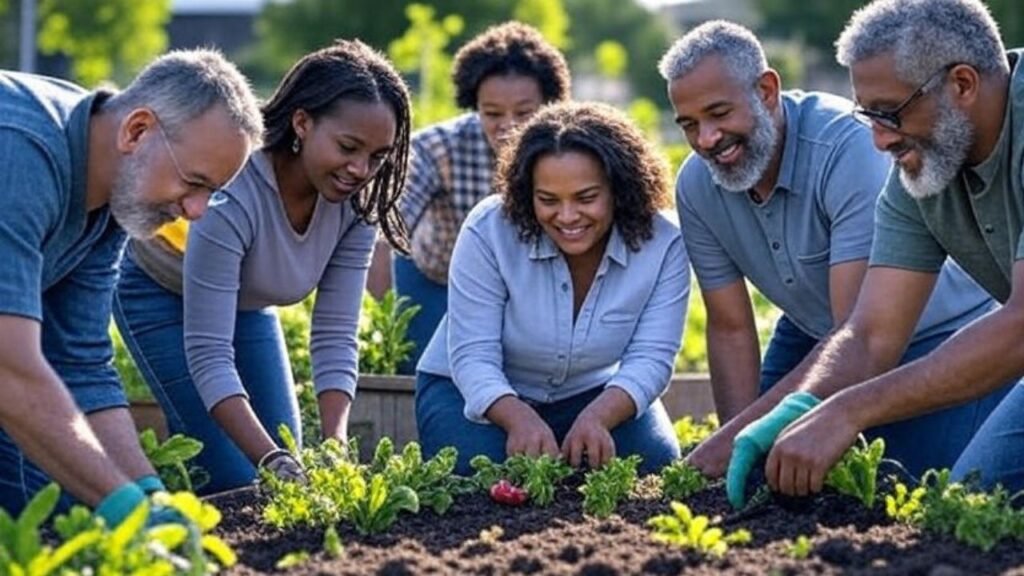Involved in Real Impact – Across the globe, communities face complex challenges where hunger and inequality remain pressing issues. Getting involved in initiatives that address food security and gender equality not only provides immediate relief but also creates long-term transformation. Food security projects focus on ensuring that families have consistent access to nutritious meals, combating malnutrition and fostering healthier societies. At the same time, gender equality programs work toward dismantling systemic barriers, enabling women and marginalized groups to access education, economic opportunities, and decision-making platforms. These efforts are interlinked: when women are empowered, households become more resilient, and when communities have reliable food systems, gender roles become less restrictive. By supporting such initiatives, individuals contribute to sustainable development goals that prioritize dignity, fairness, and well-being for all. Volunteering, advocacy, and community partnerships are powerful ways to get involved and create measurable impact where it matters most.

Strengthening Food Security for Sustainable Futures
Food security is a cornerstone of human development, ensuring that every person has reliable access to sufficient, safe, and nutritious food. According to the Food and Agriculture Organization, nearly 735 million people faced hunger in 2022, highlighting the urgent need for comprehensive solutions. Local food programs, community gardens, and policy advocacy are vital tools to address these issues. By supporting projects that improve agricultural practices, reduce food waste, and distribute resources fairly, communities can build resilience against climate shocks and economic disruptions. Furthermore, enhancing food literacy helps families make better nutritional choices, which reduces long-term health disparities. Organizations working on the ground often rely on volunteers and donations to expand their impact, making individual participation critical. Supporting food banks, sustainable farming cooperatives, and urban agriculture programs can empower local communities and contribute directly to global efforts to eliminate hunger.
Empowering Women Through Gender Equality Initiatives
Gender equality is not only a human rights imperative but also a driver of economic and social progress. Research from UN Women shows that empowering women increases national GDP, improves child health outcomes, and fosters inclusive communities. Initiatives that focus on education for girls, equal pay, and protection against gender-based violence create ripple effects across generations. Programs promoting women’s leadership in politics, business, and civil society ensure diverse perspectives in decision-making, resulting in fairer and more effective governance. Community-based initiatives also support women through vocational training, microfinance opportunities, and mentorship programs. By contributing to these efforts, individuals help break cycles of poverty and exclusion. Gender equality initiatives also strengthen food security, as women often play central roles in agriculture and household nutrition. The synergy between food access and gender justice reveals the interconnected nature of sustainable development.
How Individuals Can Participate in Impact Initiatives
Individual action plays a pivotal role in scaling social change. Volunteering time with local organizations, donating to credible causes, or using personal platforms to raise awareness are accessible entry points. For example, community kitchens often require volunteers to prepare and distribute meals to vulnerable groups, while advocacy groups need digital voices to spread critical messages. Participating in campaigns run by organizations such as Oxfam or World Food Programme can amplify global efforts. On a local scale, individuals can support women-led enterprises, engage in mentorship, or push for policy reforms that promote fairness in workplaces and schools. Even lifestyle choices, like buying fair-trade goods or reducing food waste at home, contribute to the broader mission. When individuals align their actions with the goals of food security and gender equality, they become active agents of change, reinforcing community-led progress.
Building Lasting Change Through Partnerships and Advocacy
Lasting impact requires collaboration between individuals, organizations, and governments. Multi-stakeholder partnerships have proven essential in scaling effective solutions. For example, the United Nations Sustainable Development Goals framework emphasizes partnerships as a critical factor in achieving both zero hunger and gender equality. Civil society groups can mobilize grassroots communities, while private businesses can provide funding, training, and job opportunities. Governments play a central role in creating policies that institutionalize equity and fair access to resources. Advocacy campaigns that push for stronger social protection systems, inclusive education policies, and climate-resilient agricultural strategies bring long-term security. Individuals who engage in advocacy, whether by contacting policymakers or supporting awareness campaigns, strengthen democratic accountability. By combining direct action with systemic reforms, societies can move toward a future where no one goes hungry and everyone, regardless of gender, enjoys equal opportunities to thrive.







